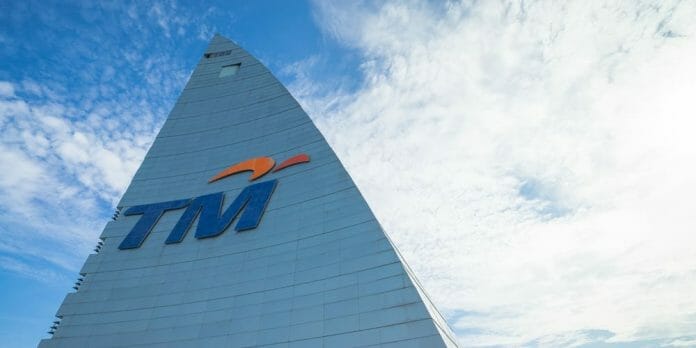Kenanga Investment Bank (Kenanga) did a deep dive into Microsoft’s recently announced USD2.2b (RM10.4b) investment in Malaysia in cloud computing and related advanced technologies, including Generative AI (GenAI).
Kenanga, in its Company Update today (May 9), said they identified Telekom Malaysia (TM) as a key beneficiary as this will result in a surge in data transmission for data centres (DC) that host public and private clouds.
The investment bank acknowleded that the earnings impact may not be immediate. Kenanga keeps to their forecasts and TP of RM7.22 while maintaining an OUTPERFORM on TM.
Multibillion cloud and AI investments. Microsoft’s investments include: (i) building cloud and AI infrastructure in Malaysia, (ii) establishing the national AI Centre of Excellence to drive AI adoption across key industries, (iii) collaboration with the government via the Perisai Siber initiative to enhance cybersecurity, and (iv) supporting the growth of Malaysia’s developer community. This is coherent with Microsoft’s earlier plans back in 2021 to establish its first DC region in Malaysia under its Bersama Malaysia initiative.
Hot on the heels of Amazon’s outlay. Meanwhile, Amazon Web Services (AWS) announced last month that it plans to invest USD6b over 14 years (until 2037) to build the AWS Infrastructure Region in Malaysia. This is in-line with Amazon’s plans to spend almost USD150b in the coming 15 years on DCs globally, according to Bloomberg. Kenanga believes this recent stream of multi-billion investments by hyperscalers are in anticipation of strong take-up of new cloud offerings powered by GenAI.
GenAI cloud services are hungry for storage. To recap, with the dawn of GenAI, organizations are accumulating and archiving vast amounts of data. GenAI-powered applications are able to analyse large data sets to generate outputs that enhance business, operational and research processes. Malaysian enterprises that have subscribed for cloud-based Gen AI solutions include:
(i) Petronas – Adopted Copilot for Microsoft 365 to enhance employee productivity and creativity. It has also leveraged on Azure OpenAI Service to boost operational efficiency, reliability, and employee safety.
(ii) Prudential Malaysia – Embedded an in-house AI tool in its call center via Azure OpenAI Service. Following this, the time required by the servicing team to gather product information for agents was reduced to less than 30 seconds (from 4 minutes previously).
Ramp up in DC capacity to cater to GenAI cloud. Nevertheless, even before the onset of GenAI, the proliferation of DCs in Malaysia to host private or public clouds has been ongoing since before 2020. This was after the Singapore government imposed a moratorium on new DC builds in 2019, in Kenanga’s view.
Evidently, according to Structure Research, there is a substantial pipeline of new DC capacity in Johor and Cyberjaya in 2023-28, amounting to 331MW and 255MW, respectively. This translates to a multi-fold expansion from total current live capacity of 141MW for both regions.
High demand for submarine cables. Against this backdrop, Kenanga anticipates sustained strong demand for submarine cables and landings that connect DCs to global networks. Therefore, TM is able to capitalise on this via its established network of digital infrastructure. This includes: (i) 32 submarine cable systems covering 340k km with over 80 Tbps capacity, (ii) 29 global Points of Presence (PoPs), (iii) 90 in-country cache nodes, and (iv) 690k km of domestic fibre optics backhaul.









